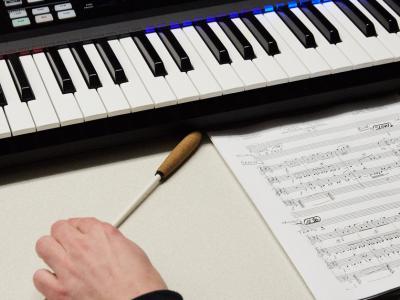What does a Proofreader do?
Music proofreaders perform a valuable role for composers and musicians, saving their precious rehearsal and recording time by ensuring that the written music and lyrics are accurate and free of errors. Like general text proofreaders, music proofreaders mainly correct typographical and spelling errors, as well as ensure that everything comes across as intended on the page. However, they might also take a closer look at issues specific to music—such as pitch, rhythm, bar numbers, dynamics, articulation, page turns, fingerings, bowings, aesthetics, house style, and positioning—in order to prepare a piece for publication. In this way, their job is similar to that of a copyist, who also proofreads and prepares sheet music.
At a Glance
While there are no formal educational requirements to work as a music proofreader, a deep knowledge of music notation and an understanding of a variety of instruments are both essential—and when it comes to getting a job in this field, a degree can only help.
Like copyists and transcribers, most proofreaders don't make a full living off this work and don't intend to pursue it as a long-term career. Instead, they are aspiring composers, conductors, orchestrators, arrangers, and music directors. For many of them, this job not only provides a steady source of income but also allows the opportunity to make valuable connections within their field.
Many proofreaders get their start by apprenticing under a music prep person of some variety (usually a copyist, proofreader, arranger, or orchestrator), although some develop the necessary skills by working as composer's assistants. While some proofreaders are freelancers, many work full or part-time in the music publishing industry, editing and proofreading new releases.
-
Reading and writing music notation
-
Notation software: Sibelius, Finale, etc.
-
Sight reading
-
Broad knowledge of instruments
-
Networking
- Organization
- Attention to detail
Music proofreading is all about organization, attention to detail, and focus. Given how many aspects of sheet music there are to examine, it’s important for proofreaders to have an organized method to their work to prevent them from missing potential problems. For freelancers, time management is also key.
Freelance proofreaders manage their own time, taking care of jobs as they come in and likely combining their proofreading work with other ventures. Proofreaders who work for publishing companies are likely to enjoy more consistent hours and work out of an office.






